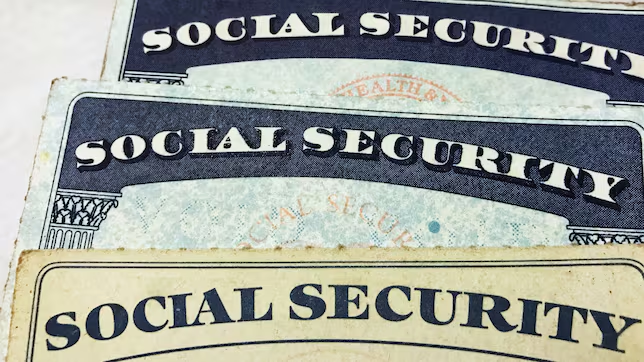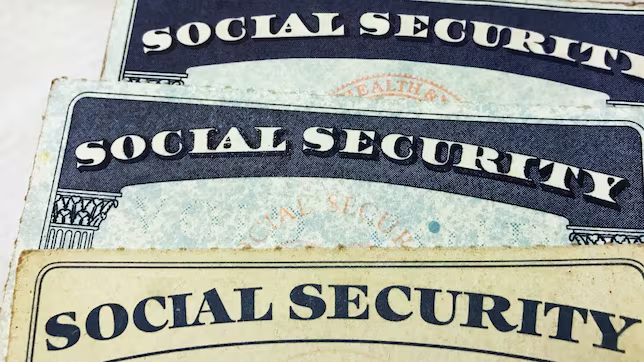
Hackers Stole Usa Social Security Numbers

Hackers Stole Every American’s Social Security Number in 2024: A National Disaster
In 2024, an unprecedented catastrophe struck the United States: hackers stole the Social Security numbers of every American. This frightening event, which will go down in history as the “Social Security Breach,” deeply shook the nation’s confidence in data security and sparked massive fears of further attacks and data misuse.
The dramatic extent of the data leak: Social security breach
The year 2024 will be remembered as the year in which the largest “Social Security Data Breach” in United States history occurred. The Social Security Number (SSN), one of the most sensitive personal information, has been stolen by hackers on a large scale. This “SSN Leak” affected every citizen of the country and put millions of Americans at risk of becoming victims of identity theft and other fraudulent activities.
Originally introduced as a means of tracking benefits, the Social Security number has now become a ubiquitous identifier used in many aspects of daily life, from tax filing to borrowing. Such a loss not only represents a massive security risk, but also an immense challenge for the affected authorities and companies, which now have to deal with the consequences of this “Social Security Number Breach”.
Causes and effects of the attack:
The exact circumstances of how the hackers were able to steal the “Social Security Number” of millions of Americans remain unclear. However, initial reports suggest that vulnerabilities in the IT infrastructure of the government and other public and private entities may have played a crucial role. The year 2024 has seen an increase in cyberattacks worldwide, but the attack on national public data that led to this “National Public Data Breach” dwarfs anything seen before.
The impact of this “social security leak” is enormous. Not only are Social Security numbers in the hands of cybercriminals, but other sensitive data associated with these numbers could also be at risk. This opens the door to a variety of types of fraud, ranging from identity theft to complex financial scams. Affected citizens now face the difficult task of protecting their identity and minimizing potential damage.
The reaction of the government and the public:
After the “SSN Breach” became known, there was great public outrage. The government has been heavily criticized as many believe that security measures to protect this sensitive information were inadequate. The fact that such a massive “Social Security Hacked 2024” incident could happen has severely shaken trust in the government and its ability to protect its citizens’ data.
The topic of “Hackers SSN” dominated the headlines in the media. Experts and politicians called for immediate action to strengthen the country’s cybersecurity infrastructure. The introduction of tougher cybercrime laws has also been mooted to prevent future incidents of this kind.
The news came as a shock to those affected. Many Americans were desperate for information on how to protect themselves. Authorities and private organizations worked around the clock to provide assistance and prevent stolen Social Security Numbers from being used for criminal purposes.
Prevention measures and future challenges:
The question of how such a “Social Security Number Data Breach” can be prevented in the future is now the focus of discussions. Experts emphasize that a comprehensive overhaul of safety protocols is necessary. Implementing advanced encryption technologies, regular security audits, and awareness of potential threats are essential to increase data security.
There is also debate as to whether the social security number is still appropriate as a primary identification number. There are proposals to introduce a new system that is less vulnerable to abuse and better protects citizens’ personal data. However, these considerations also raise questions about practicality and cost.
Long-term consequences of the attack:
The long-term consequences of the Social Security Hacked Today incident are difficult to predict. However, experts warn that the stolen data could be misused many years after the actual incident. Cybercriminals are often patient and exploit such information when attention wanes and security measures become more relaxed.
It cannot be ruled out that this incident has permanently damaged trust in the country’s digital infrastructure. Many Americans may be more skeptical about sharing their data in the future, which could have long-term effects on the country’s digitalization and economic development.
Conclusion:
The “Hackers Stole Social Security Number” incident of 2024 represents a turning point in the history of cybersecurity in the United States. The scale of the “SSN Breach” and the resulting challenges are unprecedented. As the nation works to manage the fallout and prevent future attacks, the realization remains that in a digitalized world, the security of personal information is of utmost importance. Protecting Social Security Numbers and other sensitive information will certainly be a focus of national security strategies in the coming years.
Amid this unprecedented “National Public Data Breach,” it is critical that citizens, businesses and the government work together on solutions to increase security and restore trust in digital infrastructure. The lessons learned from this event will forever change the cybersecurity landscape of the United States and potentially the world.






